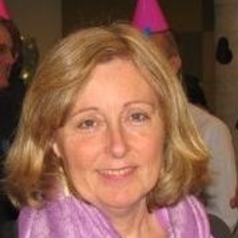
Deborah Cotton
Senior Lecturer in Finance, University of Technology Sydney
Deborah Cotton has worked as a lecturer at UTS since 1992. Prior to that she worked in stockbroking in Sydney doing both research and client advising. Currently Deborah has a PhD in Applied Finance and Actuarial Studies from Macquarie University with the thesis topic Efficacy of emissions trading schemes in Australia. Deborah is a member of the Centre for Climate Risk and Resilience in the Faculty of Business. Her current research is in climate change, sustainable finance and impact investing.
Less ![]()
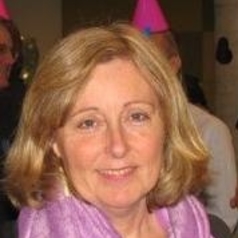
Deborah Cotton
Lecturer in Finance, University of Technology Sydney
Deborah Cotton has worked as a lecturer at UTS since 1992. Prior to that she worked in stockbroking in Sydney doing both research and client advising. Currently Deborah has a PhD in Applied Finance and Actuarial Studies from Macquarie University with the thesis topic Efficacy of emissions trading schemes in Australia. Deborah is the Deputy Head of the Finance Discipline Group in the Faculty of Business. Her current research is in climate change, sustainable finance and impact investing.
Less ![]()
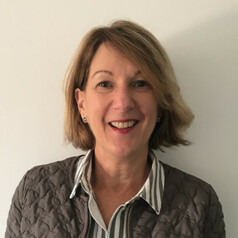
Deborah Delaney
Associate Professor, Griffith University
Associate Professor Deborah Delaney is an active researcher, educator and adjunct with the Department of Business Strategy and Innovation at Griffith University and works with Monash Online in their MBA program. She has held senior leadership positions at the University of Tasmania and Griffith University and has extensive experience as a Chartered Accountant in auditing and financial reporting in Australia and the United Kingdom.
Deborah offers expertise in the areas of corporate governance and financial reporting, as well as working with women to develop their leadership capability. She has published extensively in academic journals in these areas, has been awarded several teaching awards and has been successful in attracting research funding from grant agencies and industry partners. Deborah is a Director of the Australian Institute of Intergenerational Practice (AIIP) and of the Gold Coast Eisteddfod Foundation, a member of AICD and is fellow of CAANZ.
Less ![]()

Deborah Fisher
Design/Fashion Studies in School of Business & Creative Industries, University of the Sunshine Coast
Less ![]()
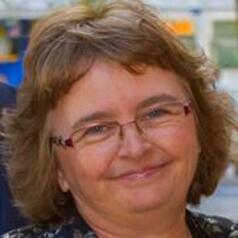
Deborah Fox
Associate Professor in Midwifery, University of Technology Sydney
Deborah Fox is Associate Professor in Midwifery and core member of the Collective for Midwifery, Child and Family Health at UTS. She is Co-lead of the Maridulu Budyari Gumal SPHERE Maternal and Women's Clinical Theme, Chair of the National Publicly Funded Homebirth Consortium and an Editorial Board member of the leading midwifery journal 'Women and Birth'.
The focus of her research is optimising physiological processes and positive experiences for women with complex pregnancies. The mediation of technology in midwifery practice is a key component of this work. Currently, this involves the evaluation of non-invasive fetal ECG (NIFECG) beltless and wireless fetal monitoring in labour and birth; and the social, economic and environmental impacts of telemonitoring and telehealth in pregnancy and postpartum care. Her PhD, which was attached to the Birthplace in Australia project, was a qualitative study of the processes and interactions involved in the intrapartum transfer of women to hospital from planned homebirth, drawing on theoretical perspectives from social psychology.
In addition to her PhD, A/Prof Fox holds a Bachelor of Midwifery degree from the Australian Catholic University (Melbourne) and a Master of Science in Midwifery and Women's Health (with Distinction) from the University of Central Lancashire in the UK. Currently a member of the Australian College of Midwives (ACM) NSW Branch Executive and ACM Professional Practice Advisory Group updating the ‘Birth at Home Midwifery Practice Standards’ and ‘Transfer from Planned Birth at Home Guidelines’, she also represents the ACM on the RANZCOG Intrapartum Fetal Surveillance Guideline Development Group. An innovative clinician, she collaborated with obstetric colleagues in 2011 to establish Singapore’s first caseload midwifery model, 'EMMa Care' and was instrumental in the implementation of Group Antenatal Care in Victoria.
Dr Fox has published widely in Q1 journals and has presented her research in the UK, Germany, Canada, Singapore, Vietnam, Myanmar, Malaysia and Australia. She supervises Hons, Masters and PhD research students in midwifery, public health and obstetrics and gynaecology.
Less ![]()
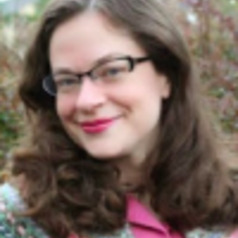
Deborah Fry
Professor of International Child Protection Research and Director of Data at the Childlight Global Child Safety Institute , The University of Edinburgh
Deborah Fry is a Professor of International Child Protection Research at the University of Edinburgh and Director of Data for Childlight - Global Child Safety Institute. At the University, Deborah undertakes primary research to measure the magnitude, drivers and consequences of violence against children, barriers and enablers to appropriate prevention and response systems including in school settings and the effectiveness of existing interventions.
Professor Fry leads the data division at Childlight - Global Child Safety Institute. The Data Institute, funded by the Human Dignity Foundation, aims to take a data driven, evidence-based approach to understanding the prevalence of child sexual exploitation and abuse across the globe and translating that data into sustainable action that safeguards children. The mission is to establish a world leading independent institute that gathers, translates and visualises the prevalence of child sexual exploitation and abuse across the world.
The institute is supported by the University of Edinburgh’s scientific expertise, including the End Violence Lab which Professor Fry co-founded, the Moray House School of Education, Edinburgh Futures Institute, the Data-Driven Innovation Programme and the Global Health Academy.
From 2019 to present, Professor Fry serves as the academic lead for the University of Edinburgh for a Long-Term Agreement with UNICEF on child protection research, administrative data and training. Professor Fry leads studies commissioned by UNICEF offices globally on understanding the nature and drivers of violence against children and using this data for evidence-based programming and policy changes and recommendations.
In addition, Professor Fry was the academic Principal Investigator of a multi-country study exploring the drivers of violence affecting children in collaboration with the UNICEF Office of Research, Innocenti from 2013 to 2018. And in 2012, Professor Fry secured a prestigious Marie Curie Fellowship to longitudinally examine the knowledge, attitudes and perceived self-efficacy of new teachers in responding to issues of bullying and safeguarding in the classroom.
Professor Fry also undertakes postgraduate teaching and administration and teaches courses on research methods and child protection research and is the Deputy Director of Research, Knowledge Exchange and Impact for the Moray House School of Education and Sport at the University of Edinburgh.
Prior to joining the University, Professor Fry was Research Director at the New York City Alliance Against Sexual Assault. During her time at the Alliance, she was the Principal Investigator (PI) on nine primary research studies on sexual violence and abuse in New York City ranging from participatory action research with immigrant communities to research with young people.
Deborah has a PhD by Research Publications from the University of Edinburgh, a Master of Arts degree from the Maxwell School of Citizenship and Public Affairs at Syracuse University, her Master of Public Health degree from Columbia University. Professor Fry was also a Fulbright Research Scholar from 2001 to 2002 and a Marie Curie Fellow from 2012 to 2015.
Less ![]()
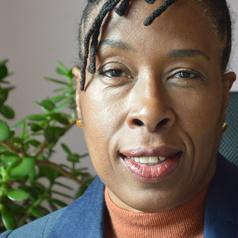
Deborah Husbands
Reader, Social Sciences, University of Westminster
Dr Deborah Husbands is a sociocultural psychologist focusing on race and ethnicity. She engages with critical race theoretical frameworks such as intersectionality and uses qualitative research methods to explore the experiences of marginalised and minoritised groups. Deborah is a co-investigator on several research projects that include motivations for sharing political disinformation on social media, museum experiences and broadening participation through co-created inclusive digital museum audio, utilisation of a chatbot for advice on sexual health in minoritised ethnic populations, and boosting COVID-19 vaccination intentions through exposure to cultural facemasks in public health messages.
Deborah’s current research investigates the role the impostor phenomenon might play in maintaining the awarding gap in racially-minoritised students in higher education. She works collaboratively with other universities to address issues contributing to an awarding gap. Additional research interests include the benefits of reverse-mentoring for improving outcomes for racially-minoritised students, decolonising the curriculum and exploring students’ sense of belonging.
Deborah is a Chartered Psychologist, holds a Fellowship of the Higher Education Academy and is an Associate Fellow of the British Psychological Society. Deborah is also a Co-Chair for the EDI Committee, Outreach Coordinator for the School of Social Sciences, Co-Chair of the BME Network, and Lead for the Black History Year programme, all at the University of Westminster.
Less ![]()
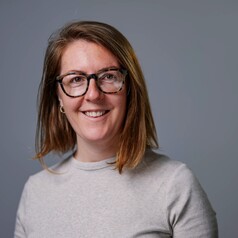
Deborah Johnson
Senior Lecturer, Politics and International Relations, University of Exeter
I am a Senior Lecturer in Politics and International Relations at the University of Exeter with a background in peace and conflict research, religion and South Asia. In particular, I researched the civil war in Sri Lanka exploring how in the war-affected north and east people developed and used forms of religious authority to create spaces outside of the major conflict dynamics through which to pursue political, social and humanitarian goals.
Personal life led me to artisanal mines in Alaska and Tanzania in the early 2000s, since when I have been expanding my work to explore the politics of natural resource extraction. I am a core member of the interdisciplinary network 'people and mining' (www.peopleandmining.com).
Less ![]()
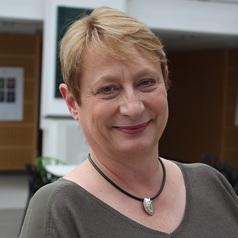
Deborah Klika/Klikova
Academic Portfolio Lead in Film & Television Production, University of Greenwich
Trained at the Australian Broadcasting Corporation in studio and film production, Deborah has enjoyed a varied career in different capacities in the Australian Film and TV Industry – from production to research to management, policy development, community cultural development and board governance. Her academic interests span production, theory and screenwriting. Deborah’s book Situation Comedy, Character and Psychoanalysis: On the Couch with Lucy, Basil and Kimmie was published by Bloomsbury Academic in 2018/9 and she has recently published a chapter on the ‘Defining the Beats in the TV Sitcom.’
Less ![]()
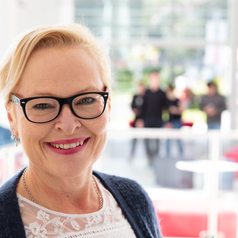
Deborah Lancastle
Associate Professor of Psychology, University of South Wales
Deborah is a Health and Care Professions Council (HCPC) registered Health Psychologist and British Psychological Society (BPS) Chartered Psychologist. After finishing her Psychology BSc and PhD in Cardiff University, Deborah worked in Cardiff University Institute of Medical Genetics, on research finding out about the psychological effects of screening women's ovaries more often when they had a history of ovarian cancer in their family. Deborah then started work as a lecturer in University of South Wales, where she is now an Associate Professor of Psychology. Deborah's research is about the psychological and social effects of women's reproductive health problems. Her research has included infertility, ovarian cancer screening, uterine fibroids, and heavy periods. As well as developing and testing ways of helping women to deal with these challenges, Deborah has contributed to expert panels, Welsh Government initiatives, continuing professional development events, and supervises a number of USW students on reproductive health topics.
Less ![]()
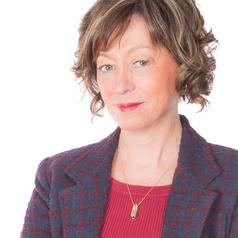
Deborah Norris
Professor, Family Studies, Mount Saint Vincent University
I received a Bachelor of Home Economics in Family Studies from Mount Saint Vincent University, a Master in Science in Family Life Education from the University of Alberta, and a PhD in Educational Foundations from Dalhousie University.
Research and professional activity with military and Veteran families has been my main focus over the course of my career. Informed by ecological theory and critical theory, I am dedicated to advancing knowledge about the cycle of deployment, military-to-civilian-transition, the impacts of operational stress injuries, and military and Veteran family resilience(y), largely from the standpoints of the families of serving members and Veterans. Recently, my military/Veteran research program has expanded to include an emphasis on the impacts of operational stress on the families of public service personnel (law enforcement officers, paramedics, firefighters). This research and professional activity is applied, collaborative, and interdisciplinary.
Family violence research and practice is also an interest, as reflected in my recent involvement with the Gendered Violence Prevention Network, a collaboration between Mount Saint Vincent University and the Nova Scotia Advisory Council on the Status of Women. In collaboration with Dr. Diane Crocker at Saint Mary’s University and the Be the Peace Institute, I am a co-investigator on study investigating the meaning of justice for women who have experienced gender-based based violence, identifying implications for system change.
Less ![]()

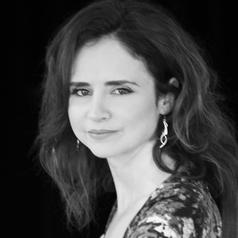
Deborah Pike
Senior Lecturer in English Literature, University of Notre Dame Australia
Deborah Pike is Senior Lecturer in English Literature at the University of Notre Dame Australia.
Less ![]()
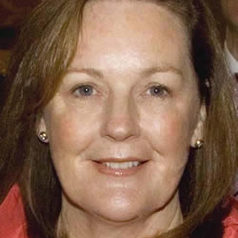
Deborah Ralston
Deborah has taught in the areas of economics, corporate finance, credit risk management, financial statement analysis and financial institutions management. She has published in a range of journals including the Journal of Banking and Finance, the Journal of International Financial Markets Institutions and Money, the Economic Record and is a co-author of the text Financial Institutions Management.
Less ![]()
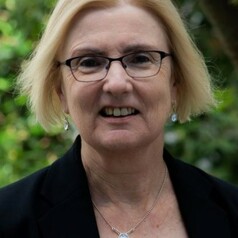
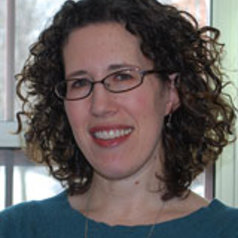
Deborah Schildkraut
Professor of Political Science, Tufts University
Debbie Schildkraut received her Ph.D. from Princeton University and her B.A. from Tufts University. Her courses include the Politics of Ethnicity and American Identity, Political Psychology, Political Science Research Methods, Introduction to American Politics, Public Opinion, and Political Representation in the United States. She is the author of Americanism in the Twenty-First Century: Public Opinion in the Age of Immigration (Cambridge University Press, 2011), Press 'One' for English: Language Policy, Public Opinion, and American Identity (Princeton University Press, 2005), and The Challenge of Democracy: American Government in Global Politics (Cengage Learning, 2015, with Ken Janda, Jeff Berry, and Jerry Goldman). Her research examines the implications of the changing ethnic composition of the United States on public opinion in a variety of domains. Her current research concerns public opinion about political representation and how the impending loss of majority status affects the political attitudes and behaviors of white Americans. For more on Schildkraut's research, see a project summary from the Russell Sage Foundation. She has also published articles in the Journal of Politics, Political Behavior, Political Psychology, Political Research Quarterly, Politics, Groups, & Identities, American Politics Research, and Perspectives on Politics. She previously served as an Assistant Professor of Politics at Oberlin College.
Less ![]()
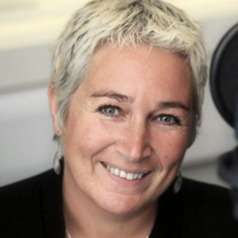
Deborah Wilson David
Head of Journalism & Media, Nottingham Trent University
I lead the Department of Journalism and Media at Nottingham Trent University in the UK, which houses the Centre for Broadcasting and Journalism, and have designed and delivered undergraduate and postgraduate programmes focused on journalism, broadcasting, and media since the 1990s. Former roles include Deputy Head and Director of Teaching and Learning of the School of English and Journalism at the University of Lincoln.
My broadcasting career with the BBC as a producer, reporter and presenter spanned news, current affairs and general programming. My later work was recognised with six Regional (International) RTDNA Edward R Murrow Awards. This broadcasting work fed directly into my teaching, which has encompassed radio and broadcast journalism practice and theory at undergraduate and postgraduate levels.
I developed a particular research interest in radio history, such as the BBC’s output during World War 2 and the early days of BBC Local Radio. I have examined radio as the original social medium, considering its enduring relevance today and more recently I extended my scholarship to consider the relationship between broadcasting and the monarchy.
My teaching, research and industry engagement has led to involvement with a number of organisations in the field. I am a Director on the Board of the US-based Broadcast Education Association, where I represent the international members. This builds on longstanding commitments with UK groups such as the Radio Studies Network and Radio Academy. I also serve on the Committee of the Association for Journalism Education and was the Vice-President of the European Journalism Training Association where I worked to ensure that organisation’s membership of the World Journalism Education Congress.
Less ![]()
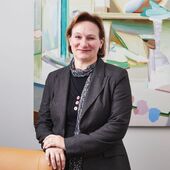

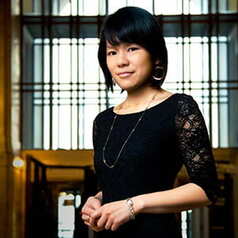
Debra Lam
Founding Director of the Partnership for Inclusive Innovation, Enterprise Innovation Institute, Georgia Institute of Technology
Debra Lam is the founding director of the Partnership for Inclusive Innovation, a statewide public-private partnership committed to investing in innovative solutions for shared economic prosperity. She continues to lead smart communities and urban innovation work at Georgia Tech. Prior to this, she served as Pittsburgh’s inaugural chief of innovation and performance where she oversaw all technology, sustainability, performance, and innovation functions of city government.
Less ![]()

Debra Pauza
Manager, First Nations Health Office, Queensland Health, Indigenous Knowledge
Debra Pauza is a proud Kalkadoon woman who was born and raised in Mount Isa, North West Queensland. With over 25 years of experience working in Queensland Government and a background in Project Management, she has built and managed positive working relationships across all levels of government, industry, and non-government organisations to achieve policy outcomes and deliver targeted commitments. She is committed to driving health equity reform to improve the health of First Nations peoples by adopting a social justice and rights-base methodology.
Less ![]()
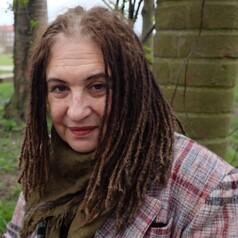
Debra Benita Shaw
Associate professor, University of East London
Debra Benita Shaw is a Reader in Cultural Theory at the University of East London. She is a critical posthumanist interested in the relationship between technology, architecture and what it means to be human. She is also a literary critic specialising in science fiction. Her most recent monographs are Posthuman Urbanism (2018) and Women, Science & Fiction Revisited (2023).
Less ![]()

Debra J. Rosenthal
Professor of English, John Carroll University
Debby Rosenthal is a widely published specialist in 19th-century American literature and in 21st-century climate change literature. She teaches American literature at John Carroll University in Cleveland, Ohio.
Less ![]()
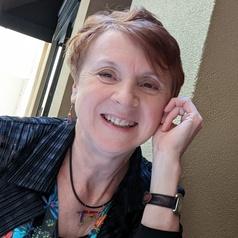
Dee Carter
Professor of Microbiology, University of Sydney
BSc (Hons) from University of Otago, New Zealand.
PhD and Diploma of Imperial College from Imperial College London, UK
2 year IMSERM Postdoctoral Fellowship at the Faculte de Medicine, Montpellier, France.
2 year NIAID Postdoctoral Fellowship at Roche Molecular Systems, Alameda, CA, USA.
28 years as an academic at the University of Sydney, with a focus on fungal pathogens and treatment strategies.
Less ![]()
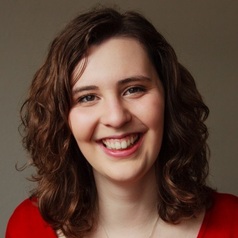
Dee Goddard
Dee Goddard is a PhD student in Comparative Politics at the University of Kent, investigating the representation of women in ministerial positions across Europe.
Dee is collecting an original dataset of the women appointed to ministerial posts across Europe since 1945, and seeks to develop an understanding when and why women are appointed to the cabinet.
She is also an active member of the Global Europe Centre and Comparative Politics Workshop at Kent.
Less ![]()
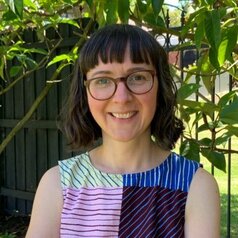
Dee Ninis
Earthquake Geologist, Monash University
Qualification - BSc Honours, Geology/Geophysics - LaTrobe University (1998)
Employment - Minerals & Petroleum, Dept. Primary Industries (1998-2004)
Employment - Seismology Research Centre (2004-2008)
Qualification - PhD Earthquake Geology - Victoria University of Wellington (2008-2017)
Employment - Seismology Research Centre (2017-)
Employment - Monash University (2021-)
Committee Member - Geological Society of Australia, Victoria Division (2021-)
Committee Member - Australian Earthquake Engineering Society (2022)
Vice President - Australian Earthquake Engineering Society (2023-)
Less ![]()
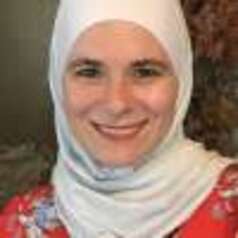
Deema Refai
Associate Professor in Enterprise and Entrepreneurship, University of Leeds
Deema Refai is an Associate Professor in Enterprise and Entrepreneurship at the University of Leeds and is currently Joint Editor in Chief of The International Journal of Entrepreneurship and Innovation. Deema’s research focus is developed around constrained entrepreneurship, with a particular interest in the refugee and rural contexts, where she has led research projects funded by the British Academy, AHRC and others. Through her work, Deema has developed strong collaborations, particularly in Jordan and the UK, and has been involved in various activities, panels and discussions around issues relevant to refugees. Her work has been published in high-ranked international peer-reviewed journals and presented in a number of national and international conferences.
Less ![]()
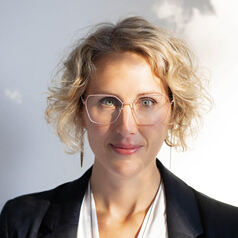
Deena Kara Shaffer
Instructor, Sociology, Toronto Metropolitan University
Dr. Deena Kara Shaffer (she/her) is Adjunct Faculty at Toronto Metropolitan University, teaching their popular learning+happiness course, and is the Director of the Office of Student and Academic Services for York University's Faculty of Environmental and Urban Change. Prior, Deena served as Manager of Thriving Innovations in Student Wellbeing and lecturer in TMU's Psychology Department. Deena is also the Founder and CEO of Awakened Learning, designing compelling learning experiences for students of all ages, parents, and leaders, and the best-selling author of "Feel Good Learning." Deena was a two-term President of the Learning Specialists Association of Canada, a former learning strategist for students with disabilities, and a skilled certified high school teacher. Deena is the co-founder of the now international Thriving in Action academic resilience intervention, and co-author of Thriving in Action Online and Thriving in the Classroom. Deena holds a doctorate in holistic learning strategies, is a trained yoga and mindfulness meditation teacher, is a published poet, and is a public speaker on learning and well-becoming. Deena's ideal day is spent outdoors getting muddy with her kids.
Less ![]()
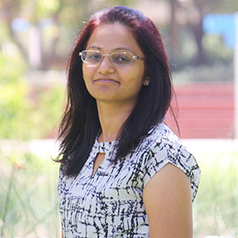
Deepa Bannigidadmath
Lecturer, Edith Cowan University
Dr Deepa Bannigidadmath holds a PhD in Finance from Deakin University. She is currently working as a lecturer at Edith Cowan University's School of Business and Law. Her research expertise is in asset pricing, forecasting, and commodity markets. Prior to joining ECU, she worked at Deakin University. She has published her research in internationally refereed journals including the Journal of Banking and Finance, Journal of International Money and Finance, Pacific-Basin Finance Journal, Economic Modelling, and Emerging Markets Review, among others.
Less ![]()

Deepak Padmanabhan
Senior Lecturer in AI ethics, Queen's University Belfast
I did all my three degrees - B.Tech, M.Tech and PhD - in Computer Science. Over the last several years, I have been specializing in AI ethics, with a particular interest in the political economy of AI.
Less ![]()
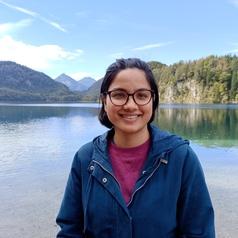
Deepashree Dutta
Postdoctoral Research Associate, University of Cambridge
I am a Postdoctoral Research Associate at the University of Cambridge. I am interested in understanding the physical processes that lead to abrupt climate changes, with a particular focus on past climates.
Less ![]()
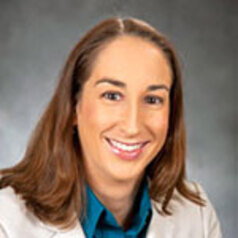
Deidre Popovich
Associate Professor of Marketing, Texas Tech University
Deidre Popovich is an Associate Professor of Marketing in the Rawls College of Business at Texas Tech University. She earned a Ph.D. in Marketing from Emory University and an MBA from Vanderbilt University. Her research focuses on consumer psychology, including how decision contexts and information cues can influence consumer decision making and self control. Her research has appeared in journals such as the Journal of Consumer Psychology, Journal of Retailing, Journal of Public Policy & Marketing, and Behavior Research Methods, among others. Her previous industry experience includes working as a marketing research manager for a national nonprofit organization and as a strategy consultant for a top-ten healthcare consulting firm.
Less ![]()
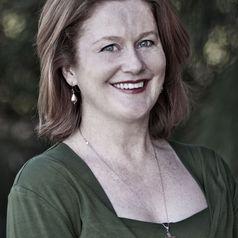
Deirdre McGhee
Researcher and Senior Lecturer, University of Wollongong, APA Sports Physiotherapist, University of Wollongong
Dr Deirdre McGhee is a researcher for Breast Research Australia (BRA), a Senior Lecturer in the School of Medicine, University of Wollongong and an APA Sports Physiotherapist.
She has extensive experience as a clinician, researcher and teacher in the area of breast support. This includes treatment of the musculoskeletal symptoms experienced by women with large breasts and breast support during exercise for female athletes and active women. Her PhD in breast biomechanics was in relation to both sports bra design and bra fit, which included a sports bra patent designed specifically for women with large breasts. She has written several evidence-based educational resources for women on breast support and bra fit during physical activity, including guidelines for Sports Medicine Australia, “Exercise and breast support” which was the first sporting body in the world to introduce such guidelines and the App, Sports bra (available on iTunes & www.bra.edu.au), which is the only app in the world that contains evidence-based information to assit women choose a well-fitted, supportive sports bra that suits their exercise needs.
Contact details: [email protected].
Less ![]()
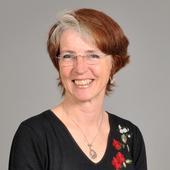
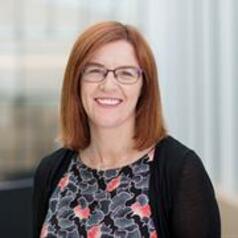
Deirdre Fitzgerald Hughes
Senior Lecturer, Clinical Microbiology, RCSI University of Medicine and Health Sciences
Healthcare-associated infections (HCAI) are those that occur in patients receiving medical treatment in a hospital, long-term care facility or as an outpatient. These infections increasingly involve bacteria that are resistant to most antibiotics and are therefore difficult to treat. The organisms that represent the most risk to human health, and for which we have limited treatment options are the ESKAPE pathogens (Enterococcus faecium, Staphylococcus aureus, Klebsiella pneumoniae, Actinetobacter baumannii, Pseudomonas aeruginosa, Enterobacter Spp.). My main areas of interest are the molecular epidemiology, transmission and pathogenesis of HCAIs, particularly ESKAPE pathogens and Clostridium difficile. Our group explores how these aspects of HCAIs can underpin the development of more effective infection control strategies and novel anti-infective therapeutics.Past and current projects have investigated:The significance of the host immune response and bacterial virulence to the clinical outcome of bloodstream infections caused by S. aureus including methicillin-resistant S. aureus (MRSA).The patterns and transmission of antibiotic-resistance genes in Gram-negative pathogens that produce extended spectrum beta-lactamases (ESBL).The potential contribution of horizontal gene transfer within biofilms to the evolution of S. aureus.Detection and transmission of antibiotic-resistance pathogens such as Klebsiella pneumoniae and vancomycin resistant enterococci (VRE) in the clinical environment adjacent to patients.The effectiveness of targeted antimicrobial peptides and other novel agents, against specific infections involving antibiotic resistant pathogens such as MRSA (catheter-associated and wound infection), ESBL-producers (urinary tract and bloodstream infections)and P. aeruginosa (chronic respiratory infections) and infections involving multiple organisms (diabetic foot infections).
Less ![]()
- Market Data





















